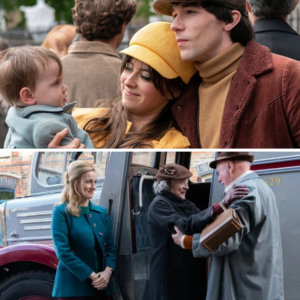Outrage in Texas: Karmelo Anthony, Accused Teen Killer, Luxuriates in $900K Gated Mansion and Splurges on New Car While Austin Metcalf’s Family Grieves
In a shocking display of privilege amid tragedy, 18-year-old Karmelo Anthony, the Texas teen accused of brutally stabbing 17-year-old track star Austin Metcalf to death at a high school athletic event, is now living a life of luxury. Released on a reduced $250,000 bond just weeks after the horrific April 2, 2025, incident in Frisco, Anthony has reportedly hunkered down with his family in a sprawling $900,000 home nestled within the exclusive gated community of Richwoods. Adding fuel to the fire of public fury, reports indicate the family recently purchased a brand-new car, all while Metcalf’s devastated loved ones struggle to comprehend how justice could allow such extravagance in the face of their unimaginable loss. This blatant disparity has ignited widespread outrage, with critics slamming the system that seemingly rewards the accused while the victim’s family is left in perpetual anguish.
The case, which has gripped the nation since that fateful day at Frisco’s Kuykendall Stadium, stems from what authorities describe as a senseless altercation over seating during a track meet. Austin Metcalf, a promising junior at Memorial High School known for his athletic prowess and bright future, was fatally stabbed multiple times in the chest and abdomen. Witnesses recounted a chaotic scene where Anthony, then 17 and a student at Frisco Centennial High School, allegedly pulled a knife and attacked Metcalf without provocation. Video footage later released showed no obvious fight leading up to the stabbing, painting a picture of cold-blooded violence that left Metcalf dying in his twin brother’s arms. Metcalf’s father, Jeff Metcalf, has publicly decried the act as premeditated murder, stating that justice is finally being served with Anthony’s indictment—but many question if that’s truly the case when the accused is enjoying gated-community perks.
Anthony was arrested on-site and initially held on a $1 million bond, charged with first-degree murder. However, in a move that has drawn sharp criticism, a Collin County judge reduced the bond to $250,000 on April 14, 2025, allowing Anthony’s release under house arrest with an ankle monitor. Critics argue this leniency reeks of favoritism, especially given the severity of the crime—a young life snuffed out over something as trivial as a seat dispute. While Metcalf’s family buries their son and copes with the void, Anthony walks free, confined only to the comforts of a lavish rental property that most Americans could only dream of.
The $900,000 home on Mercedes Lane in Richwoods, an upscale gated enclave in Frisco, Texas, boasts all the trappings of luxury living. Valued at nearly a million dollars, the property features multiple bedrooms, expansive living spaces, and access to community amenities like private parks and 24-hour security—ironic, considering Anthony’s family cited safety concerns as a reason for the move. Renting for an estimated $3,500 per month, this isn’t some modest abode; it’s a fortress of privilege where Anthony can retreat from the consequences of his alleged actions. Photos and reports describe the neighborhood as one of Frisco’s most exclusive, with manicured lawns, high-end homes, and a sense of seclusion that shields residents from the outside world. How fitting, detractors say, that a teen accused of such a heinous crime gets to hide behind gates while Metcalf’s family faces the harsh reality of grief in the open.
But the outrage doesn’t stop at the house. Shortly after Anthony’s release, reports surfaced that the family had acquired a brand-new car, further stoking public anger. While details on the make and model remain sparse, the purchase has been linked to the family’s newfound financial influx from online fundraisers. A crowdfunding campaign set up for Anthony’s legal defense has raked in over $430,000, with donors seemingly sympathetic to claims of self-defense—despite evidence suggesting otherwise. Social media exploded with accusations that these funds were being misused for luxuries like the car and the upscale rental, prompting fact-checkers to investigate. Although the platform confirmed no withdrawals had been made at the time, the optics are damning: Why splurge on a vehicle when a family is pleading poverty in court?
Anthony’s family has pushed back against the backlash, holding a press conference on April 17, 2025, where they expressed condolences for Metcalf’s family while defending their son’s innocence. His mother tearfully spoke of the threats they’ve received, justifying the move to a secure gated community as a necessity for safety. “We’re heartbroken over what happened, but Karmelo is not a monster,” she said, insisting the stabbing was an act of self-defense. Yet, this narrative rings hollow to many, especially as new video footage emerged showing Anthony calmly approaching Metcalf before the attack. The family’s pleas for more donations—now totaling nearly $1.5 million across campaigns—have only amplified the fury, with critics questioning why they’re living large if funds are truly for legal fees.
Jeff Metcalf, Austin’s grieving father, has been vocal about his disgust. In interviews, he described the pain of seeing Anthony free to enjoy family life while his son lies in a grave. “Justice being served? Not when he’s out there in a fancy house, buying cars, and my boy is gone forever,” Metcalf said, his words echoing the sentiments of thousands online. Social media platforms have been ablaze with posts condemning the situation, with one viral thread calling it “a slap in the face to victims everywhere.” Users pointed out the irony: Metcalf, a dedicated athlete with dreams of college scholarships, had his future stolen, yet Anthony gets to lounge in luxury awaiting a trial set for June 1, 2026.
This case highlights deeper systemic issues plaguing America’s justice system, where bond reductions and house arrest for violent crimes seem disproportionately lenient for some. Frisco, an affluent suburb of Dallas, is no stranger to wealth disparities, but allowing an accused murderer to reside in a gated paradise while under indictment for first-degree murder feels like a grotesque perversion of fairness. Legal experts have weighed in, noting that while house arrest is standard for juveniles or first-time offenders, the extravagance here undermines public trust. “It’s not just about the law; it’s about perception,” one Collin County attorney anonymously told reporters. “When the accused lives better than most law-abiding citizens, it erodes faith in the process.”
The controversy over the family’s fundraisers adds another layer of indignation. Initially launched to cover legal costs and security upgrades, the campaigns have drawn scrutiny for potential misuse. Despite the family’s denials and assurances that funds remain untouched, the timing of the new car purchase and the move to Richwoods raises eyebrows. “Be confident in how their donation is being used,” the family urged donors, but skeptics aren’t buying it. One donor even retracted their contribution after learning of the luxury living, posting online: “I thought this was for justice, not a lifestyle upgrade.” This sentiment has spread, with petitions circulating to investigate the funds and calls for stricter oversight on crowdfunding for criminal defenses.
As Anthony awaits trial under a sweeping gag order issued by a Collin County judge on July 29, 2025, prohibiting all parties from discussing the case publicly, the silence only amplifies the public’s roar. The order, aimed at ensuring a fair trial, has instead fueled speculation and anger, with many feeling it protects the accused more than the victim’s memory. Metcalf’s community has rallied with memorials and scholarships in his name, but the sting of seeing Anthony’s family thrive persists. “Austin was full of life, dreams, and potential,” a former coach shared at a vigil. “To think his killer is out there, safe behind gates, with a new car in the driveway—it’s infuriating.”
The broader implications are chilling: In a society where school violence is already epidemic, allowing accused perpetrators to live in opulence sends a dangerous message. It suggests that money and connections can buy comfort even after taking a life. Anthony’s case isn’t isolated; similar stories of bond releases leading to luxurious confinements have sparked debates nationwide. Yet, here in Texas, where tough-on-crime rhetoric dominates, the hypocrisy is palpable. Why reduce the bond? Why allow such freedom? These questions haunt Metcalf’s supporters, who demand accountability not just for the stabbing but for the system’s failures.
As the trial date looms in 2026, the outrage shows no signs of abating. Online forums buzz with calls for boycotts of crowdfunding platforms and demands for harsher pretrial conditions. “This isn’t house arrest; it’s a vacation,” one user fumed in a post garnering thousands of upvotes. The family’s attempts to humanize Anthony—portraying him as a scared teen acting in self-defense—fall flat against the backdrop of luxury. Metcalf’s twin brother, who held him as he bled out, has spoken of nightmares and loss, contrasting sharply with Anthony’s reported daily life of family time in a secure haven.
In the end, this saga isn’t just about one teen’s alleged crime; it’s an indictment of inequality in justice. While Karmelo Anthony enjoys gated walls, a new car, and family support, Austin Metcalf’s legacy is reduced to memories and a gravestone. The public demands better—stricter bonds, transparent fund use, and a system that prioritizes victims over the comforts of the accused. Until then, the fury will burn, a testament to the raw wound left by a senseless killing and the privileges that mock true accountability.




